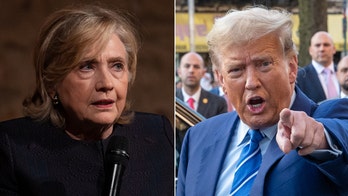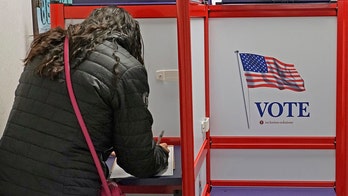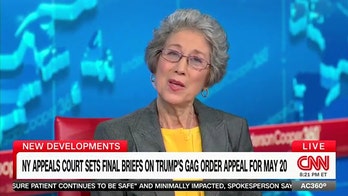The Supreme Court ruled 6-3 in favor of the Biden administration in a case that alleged the administration coordinated with social media companies to censor speech. The majority opinion, written by Justice Amy Coney Barrett, found that the plaintiffs, state attorneys general from Missouri and Louisiana, lacked standing to bring the challenge.
The Supreme Court on Wednesday ruled in favor of the Biden administration in a challenge to its alleged coordination with social media companies, saying that the states who sued the administration lacked standing.
The case, Murthy v. Missouri, stems from a lawsuit brought by state attorneys general from Missouri and Louisiana that accused high-ranking government officials of working with giant social media companies "under the guise of combating misinformation" that ultimately led to censoring speech on topics that included Hunter Biden's laptop, COVID-19 origins and the efficacy of face masks.

Supreme Court Rules in Favor of Biden Administration in Social Media Censorship Case
Justice Amy Coney Barrett, writing for the majority, said the plaintiffs lacked standing to bring their challenge.
"The plaintiffs, without any concrete link between their injuries and the defendants’ conduct, ask us to conduct a review of the years-long communications between dozens of federal officials, across different agencies, with different social-media platforms, about different topics," she wrote.

Supreme Court Rules in Favor of Biden Administration in Social Media Censorship Case
"This Court’s standing doctrine prevents us from ‘exercis[ing such] general legal oversight’ of the other branches of Government. We therefore reverse the judgment of the Fifth Circuit and remand the case for further proceedings consistent with this opinion."
The vote was 6-3, with Justice Samuel Alito dissenting, joined by Justices Clarence Thomas and Neil Gorsuch.

Supreme Court Rules in Favor of Biden Administration in Social Media Censorship Case
"The plaintiffs claim standing based on the ‘direct censorship’ of their own speech as well as their ‘right to listen’ to others who faced social-media censorship," Barrett wrote.
"Notably, both theories depend on the platform’s actions — yet the plaintiffs do not seek to enjoin the platforms from restricting any posts or accounts. They seek to enjoin Government agencies and officials from pressuring or encouraging the platforms to suppress protected speech in the future," she wrote, adding that the states' "alleged injuries" were of a "one-step-removed, anticipatory nature."

Supreme Court Rules in Favor of Biden Administration in Social Media Censorship Case
In a July 4 court order last year, U.S. District Court Judge Terry A. Doughty imposed the temporary injunction preventing White House and executive agency officials from meeting with tech companies about moderating content, arguing that such actions in the past were "likely" First Amendment violations.
"If the allegations made by Plaintiffs are true, the present case arguably involves the most massive attack against free speech in United States’ history," the injunction said. "In their attempts to suppress alleged disinformation, the Federal Government, and particularly the Defendants named here, are alleged to have blatantly ignored the First Amendment’s right to free speech."
The injunction also claimed that "the censorship alleged in this case almost exclusively targeted conservative speech," but that issues the case raises are "beyond party lines."
The Justice Department had argued that the temporary ban would cause "irreparable harm" because it may prevent the federal government from "working with social media companies on initiatives to prevent grave harm to the American people and our democratic processes."
Justice Alito, however, said that "if the lower courts’ assessment of the voluminous record is correct, this is one of the most important free speech cases to reach this Court in years."
"For months, high-ranking Government officials placed unrelenting pressure on Facebook to suppress Americans’ free speech. Because the Court unjustifiably refuses to address this serious threat to the First Amendment, I respectfully dissent," he said.
Barrett explained that "the plaintiffs rely on allegations of past Government censorship as evidence that future censorship is likely."
"But they fail, by and large, to link their past social-media restrictions to the defendants’ communications with the platforms. Thus, the events of the past do little to help any of the plaintiffs establish standing to seek an injunction to prevent future harms," she said.
"These past and threatened future injuries were caused by and traceable to censorship that the officials coerced, and the injunctive relief she sought was an available and suitable remedy," Alito countered, adding that the evidence was "more than sufficient" to establish the plaintiff's standing to sue.
"[A]nd consequently, we are obligated to tackle the free speech issue that the case presents," he added.
"The Court, however, shirks that duty and thus permits the successful campaign of coercion in this case to stand as an attractive model for future officials who want to control what the people say, hear, and think. That is regrettable," he said.
"Officials who read today’s decision together with Vullo will get the message. If a coercive campaign is carried out with enough sophistication, it may get by. That is not a message this Court should send," he added. ".










